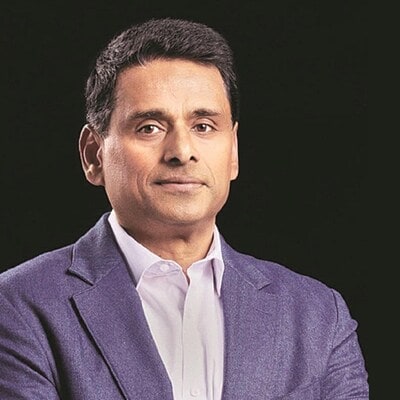Srinivas Pallia sold his entire stake in Wipro before taking over as CEO
Wipro has announced the appointment of Srini Pallia as CEO and MD
Srinivas Pallia, who has been a part of Wipro for over three decades, divested all his shares valued at Rs 5 crore in the company approximately a month and a half prior to his appointment as the new chief executive, according to a report by The Economic Times (ET).
Pallia sold his 100,000 Wipro shares through a ‘market sale’ on February 14 this year, with the transaction being reported to the exchange on February 15. The total transaction amounted to Rs 5.05 crore, the report added. Following the transaction, Pallia’s holdings of securities on the BSE were reduced to zero.
On April 6, Wipro, the fourth largest software services firm in India, announced the unexpected departure of former CEO Thierry Delaporte, who resigned 15 months before the end of his five-year term. Pallia was reportedly promoted to the top position immediately.
During FY23-24, Wipro faced scrutiny due to its lukewarm revenue performance, which lagged behind that of most of its large-cap Indian peers.
Critics also voiced concerns about the attrition of senior leadership over the past two years. As Delaporte pursued his “transformation agenda” at the $11 billion Bengaluru-based company, Wipro experienced a loss of talent, with approximately eighteen senior executives departing over the last four years, according to ET.
Pallia, who joined Wipro in 1992, previously served as the head of Americas 1, Wipro’s largest and fastest-growing strategic market, before assuming the role of CEO. Based in New Jersey, Pallia reports to chairman Rishad Premji. Wipro shares have witnessed a surge of nearly 27 per cent over the past year, but on Monday, they closed 2.47 per cent lower at Rs 459.25 on the BSE.
The new CEO is expected to negotiate a fresh contract with the company, with his compensation structured accordingly, ET said. Citing experts, the report noted that typically, senior executives in IT companies receive various components in their salary structure, including base salary, allowances, bonuses or incentives, as well as stock units such as performance stock units, restricted stock units, and ESOPs (employee stock ownership plans).
First Published: Apr 16 2024 | 10:15 AM IST
